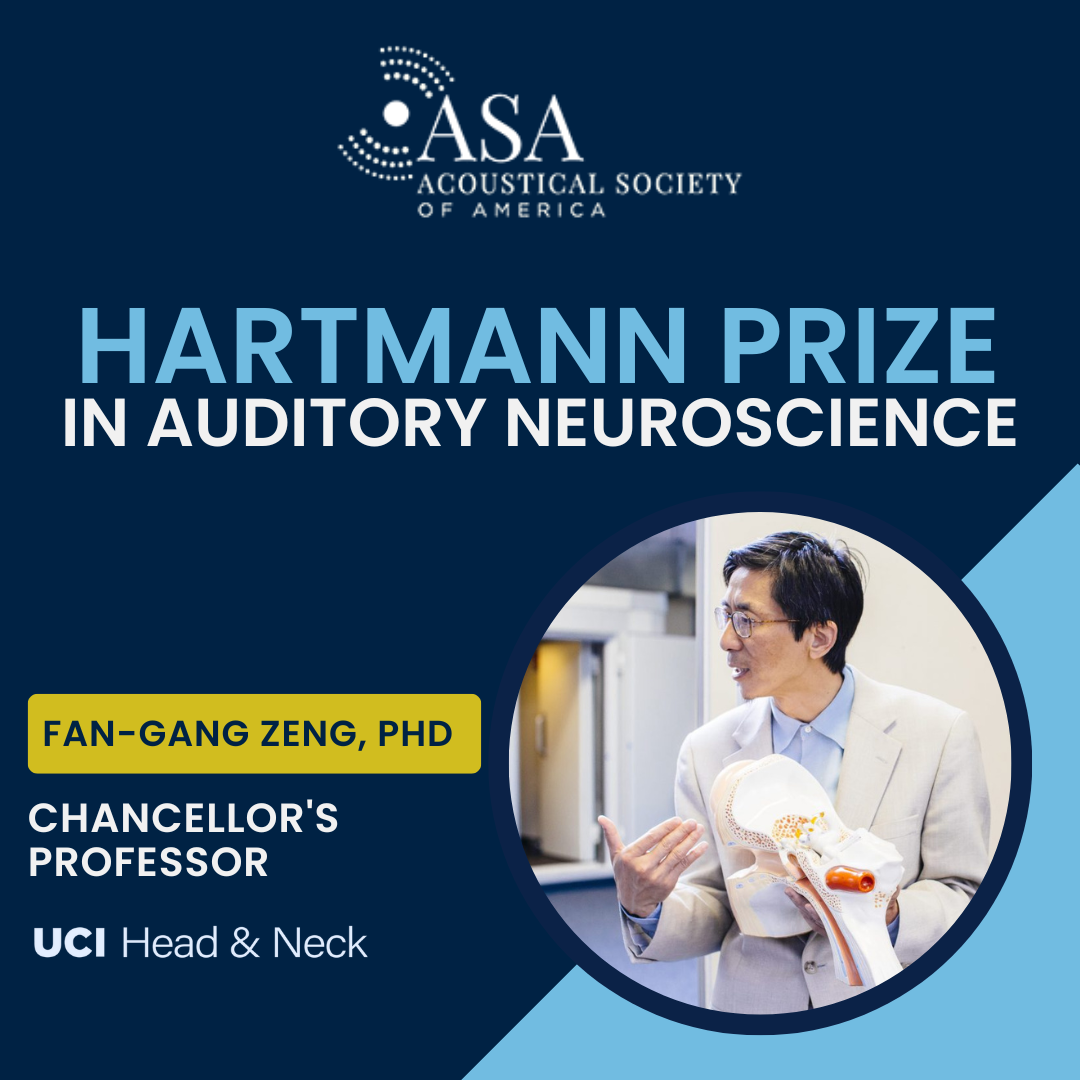in Auditory Neuroscience

The Acoustical Society of America has awarded the prestigious 2025 William and Christine Hartmann Prize in Auditory Neuroscience to Dr. Fan-Gang Zeng, Chancellor’s Professor of Otolaryngology – Head and Neck Surgery, Biomedical Engineering, Cognitive Sciences, and Neurobiology and Behavior at the University of California, Irvine. The Hartmann Prize recognizes Dr. Zeng’s transformative impact on both fundamental understanding and clinical treatment of hearing disorders.
For over three decades, Dr. Zeng has been at the forefront of auditory neuroscience, pioneering research that bridges behavioral science, neurophysiology, engineering, and translational medicine. His work has not only deepened scientific insight into how we perceive sound, speech, and loudness, but also driven real-world applications that have expanded access to hearing health technologies globally.
“Fan-Gang is not only a brilliant scientist but a visionary,” said Dr. John Middlebrooks, UCI professor and nominator. “He’s one of the rare people who can unify basic research with practical innovation, from cochlear implants to tinnitus therapies, always with the patient in mind.”
Among Dr. Zeng’s most influential contributions is his work on the psychophysics of cochlear implants. Early collaborations with Robert Shannon resulted in landmark studies demonstrating how temporal cues—rather than detailed spectral information—can support speech perception. This insight reshaped cochlear implant design and popularized the use of vocoder simulations in auditory research.
He also advanced our understanding of loudness perception, showing how electrical stimulation reveals central auditory mechanisms that deviate from cochlear models. These insights informed his active loudness model, which has become a foundational framework for understanding tinnitus, hyperacusis, and hearing loss.
In more recent years, Dr. Zeng has addressed the enigmatic condition of auditory neuropathy, uncovering how impaired temporal processing disrupts speech perception. His combined use of electrophysiological and psychophysical tools exemplifies his integrative approach to complex auditory disorders.
Perhaps the most remarkable example of this translational vision is Dr. Zeng’s leadership in the development of the Nurotron cochlear implant, an affordable and accessible hearing device used by tens of thousands across China and other parts of the world. By leveraging proven technologies in a cost-effective design, the Nurotron system broke new ground in global hearing health equity.
Throughout his career, Dr. Zeng has mentored generations of students and postdocs, advocated for inclusion in science, and championed the public understanding of hearing science. His editorial writings and public talks inspire the next generation of researchers, clinicians, and innovators.
“The next breakthroughs in translational neuroscience,” Dr. Zeng recently stated, “won’t just come from lab benches—they’ll come from people who can bring the entire ecosystem together.”
The Hartmann Prize affirms Dr. Zeng’s role as one of those rare individuals—a connector of disciplines, a catalyst of progress, and a relentless advocate for those with hearing loss.
